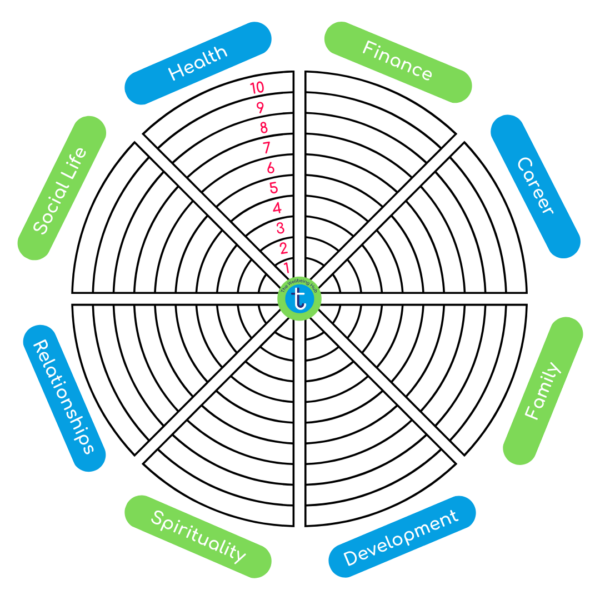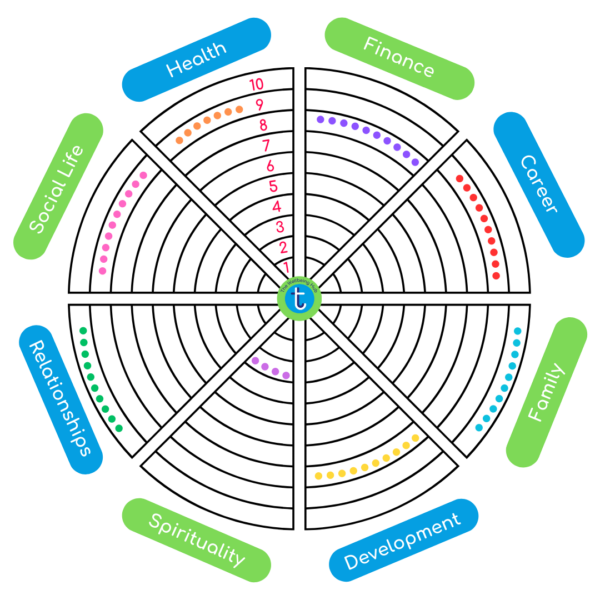
West Street, BN7 2NZ Lewes,
[email protected] 00441273093940 https://www.teentips.co.uk
The wheel of life
Life can feel out of balance when some of our basic psychological needs – like feeling independent, connected with others, and capable – aren’t being met (Ryan & Deci, 2018). Maybe you’re putting so much energy into your family/work that your relationship with your partner is getting neglected, or you are so focused on your career that you are not leaving time for fun. It’s easy to get off track, but recognising these imbalances is the first step toward finding harmony again
What is the wheel of life for?
The wheel of life gives you a quick snapshot of how you’re feeling about different aspects of your life and your overall wellbeing. It helps you see if things feel balanced or if there are areas that might need a little more attention. By taking a closer look, it shows whether each part of your life is meeting your needs and bringing you happiness, or if there are parts that might be leaving you feeling a bit off.
How to use the wheel of life (downloadable pdf available below too)
Firstly, look at the different categories and think about what they mean for you. For example, spiritual might mean religion to one person and yoga to another.

Now score yourself for each section – yours will probably look totally different to the one below, but you get the idea:

Here are some questions you might like to consider now that you have completed your wheel of life.
Rather than trying to change too much too quickly focus on one thing at a time.
How to develop a new habit:
Keep up to date on our latest insights, guidance and tips